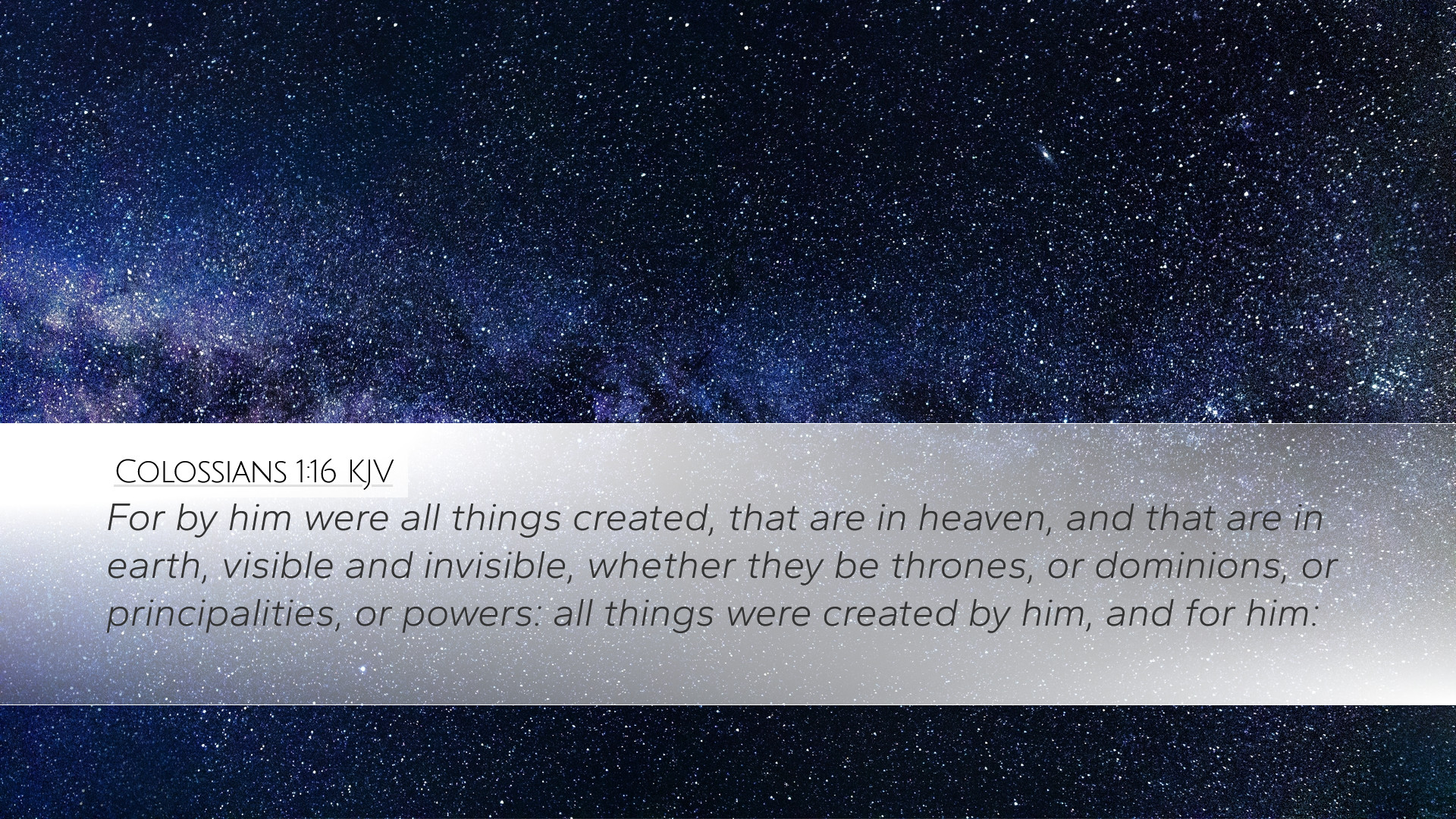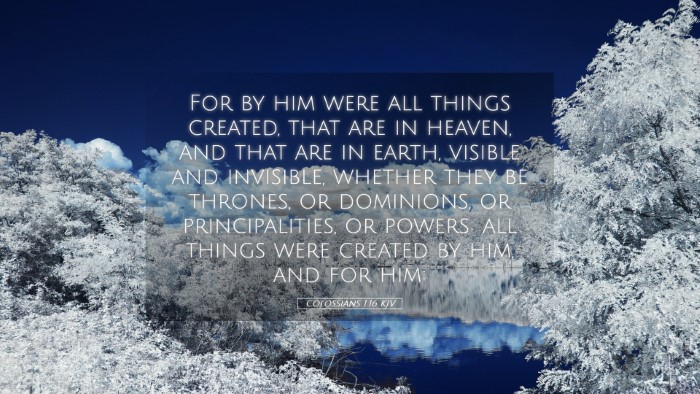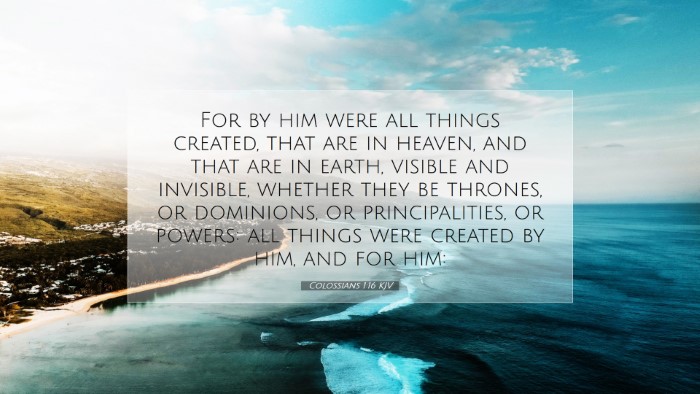Commentary on Colossians 1:16
Verse: "For by him were all things created, that are in heaven, and that are in earth, visible and invisible, whether they be thrones, or dominions, or principalities, or powers: all things were created by him, and for him."
Introduction
Colossians 1:16 holds a pivotal position in understanding the supremacy of Christ in creation. The Apostle Paul, in this verse, articulates the foundational truth that Christ is not only the agent of creation but also the purpose behind it. This commentary synthesizes insights from notable public domain commentaries to provide a well-rounded understanding of this powerful verse.
The Agent of Creation
Initial observations from Matthew Henry emphasize that the phrase "by him were all things created" signifies the active role of Christ in creation. This affirms His preeminence and divinity. Henry argues that the use of "all things" encapsulates not just physical entities, but also spiritual realms, thus asserting the authority of Christ over every aspect of existence.
Albert Barnes further elaborates by distinguishing between the visible and invisible realms. He notes that the inclusion of both realms illustrates the comprehensive scope of Christ's creative work. The concept of "invisible," Barnes posits, includes spiritual entities and heavenly beings, thereby highlighting Christ's supremacy over spiritual dominions.
The Scope of Creation
The enumeration "thrones, dominions, principalities, or powers" serves to underscore the vastness of Christ’s authority. Adam Clarke asserts that this listing refers not only to earthly rulers but also to angelic ranks, suggesting that all levels of authority find their origin in Christ. These terms articulate the hierarchical structure of both the earthly and heavenly realms, establishing Jesus as the ultimate sovereign.
Moreover, the mention of "all things" reinforces the idea that nothing exists outside of Christ’s creative will. Each created element, whether seen or unseen, acts under His governance. This insight invites believers to recognize the divine orchestration underlying creation.
Created "For Him"
A profound aspect of this verse is the assertion that "all things were created by him, and for him." Henry highlights that the purpose of creation is ultimately centered in Christ. This notion shifts the perspective of creation from mere existence to meaningful purpose, affirming that everything in the universe serves a function aligned with Christ’s intentions.
Barnes adds that this purpose includes the glorification of Christ, asserting that the entirety of creation reflects His glory and majesty. The created order bears witness to the Creator, encouraging believers to live in harmony with the divine design that underscores all existence.
Clark underscores the significance of recognizing Christ as the ultimate end of creation. When believers understand that everything exists "for him," it transforms their life perspectives and priorities, urging them to align their lives with the mission and calling of Christ.
Theological Implications
The implications of Colossians 1:16 extend into various theological discussions. Firstly, this verse serves as a cornerstone for Christology, particularly in articulating the nature of Christ as the divine Creator. According to Henry, affirming the divine nature of Christ solidifies the doctrine of the Trinity, presenting Him as fully God and distinct in His personhood while engaging fully in creation.
Furthermore, it provides a basis for discussing the relationship between creation and redemption. Barnes points out that viewing creation through the lens of Christ’s redemptive work presents a holistic view of the cosmos. All things not only originated through Christ but also are being reconciled through Him (Colossians 1:20), depicting a narrative of creation, fall, and restoration.
Practical Applications
For pastors and ministers, the truths within Colossians 1:16 can enrich preaching and teaching. The comprehensive authority of Christ can be a profound encouragement for congregations to trust in His sovereignty over personal and community challenges.
Meanwhile, theologians and scholars may find it essential to integrate this verse into discussions surrounding creation care. If all things exist for Christ, it necessitates a stewardship ethic where believers are called to respect and care for creation as an act of worship.
For students of the Bible, contemplation on this verse can deepen their understanding of the relationship between Christ and creation, inviting them to explore how this understanding affects their personal faith and worldview.
Conclusion
Colossians 1:16 presents a profound truth about the nature of Christ as the creator of all things and the ultimate purpose of creation. By synthesizing insights from prominent commentaries, we recognize that understanding Christ’s role within creation magnifies His significance in our lives and the universe. This verse not only serves as a theological cornerstone but also as a practical guide for how believers are to view their existence in relation to the Creator.


